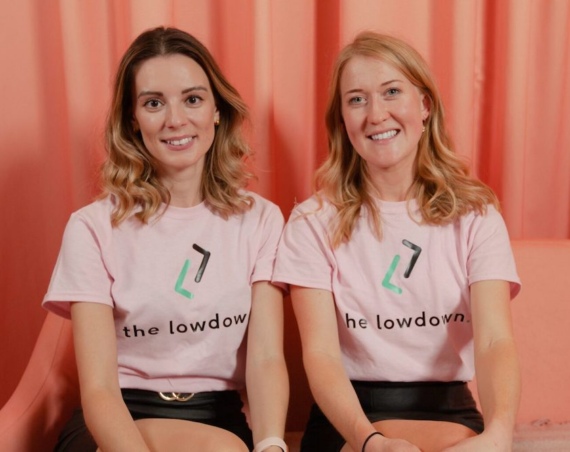This article was originally published on Medium. We are sharing it here with permission of the author. You can access the original article here.
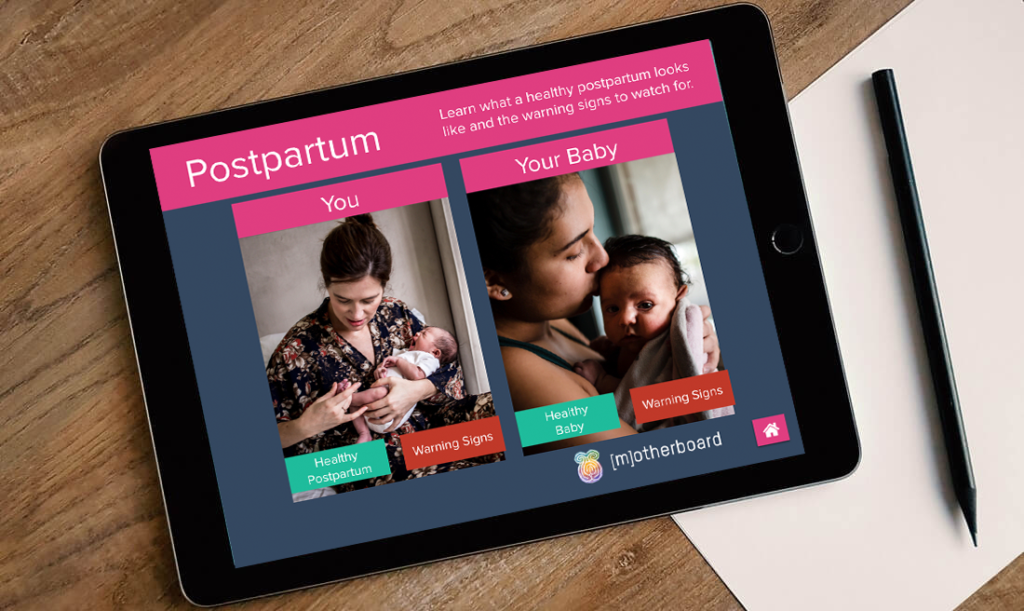
130 million people give birth around the world every year. Up to 50% of these will have surgical intervention. Medical procedures require consent — but how? Femtech startup founder Amy Haderer is on a mission to make sure that millions of birthing parents are having their most basic human rights resepcted — with technology as the solution.
Amy Haderer is a mother of six, a doula (i.e. personal birth attendant), fine artist, stage set designer, and, but not least, the co-founder of a Femtech startup Motherboard Birth.
Amy explains her journey to entrepreneurship. “My first daughter made me a mother which completely rearranged my cells and made me a completely different being. My second daughter made me a doula and that was an amazing opportunity to serve people during their birth experience. My third daughter made me an artist.”
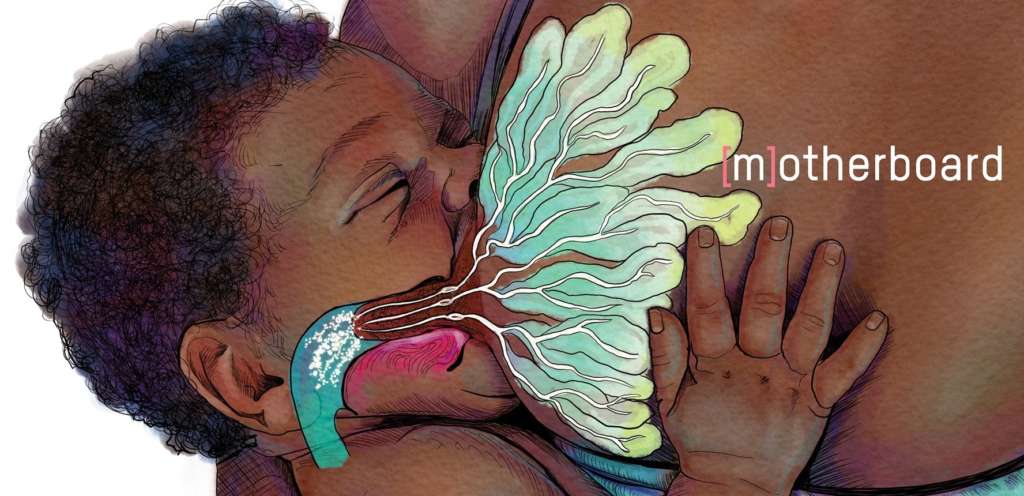
Motherboard is the big tech baby that’s making her a startup founder.
Working one on one wasn’t giving Amy the widespread impact she wanted. “I really wanted to move from one family, one birth, to ‘What can we do to go to scale and change birth from the inside out systemically?’” This is what she and her team are doing now.
Many birthing parents will have heard of a birth plan — most may not know that they are not well received by care providers. Some care providers even joke that a Birth Plan is a fast track to the operating theatre.
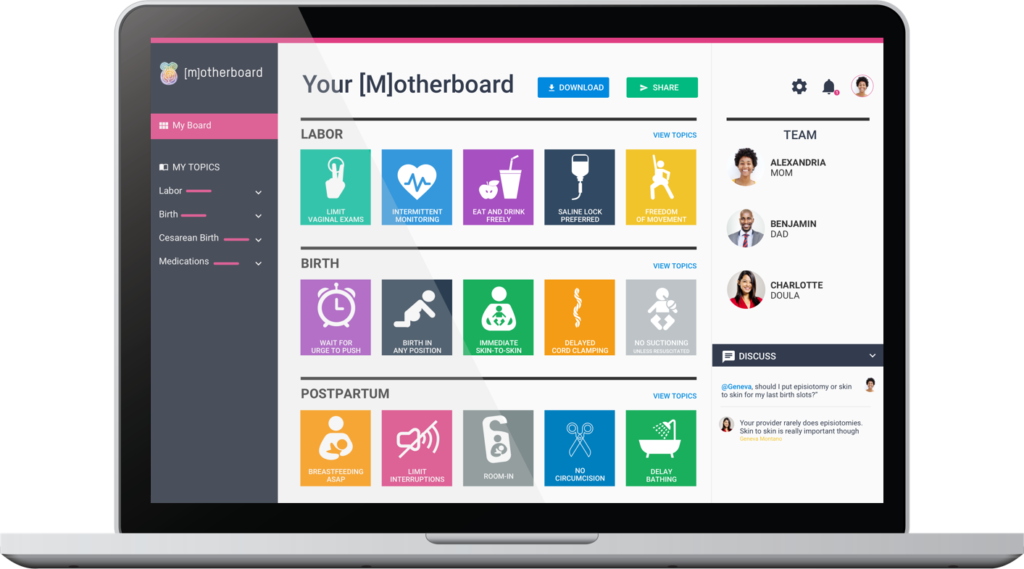
Amy’s vision is to return the balance of authority back over to the birthing person. “We can reclaim what birth plans are meant to be. Birth plans get a bad rap. 65% of care providers believe they actually create worse outcomes. Really, I wanted to turn birth plans back into the communication tool they are supposed to be.”
Amy’s is now achieving this, with the Motherboard Birth just passing its 1st birthing (there may have been cake and candles), and birthing parents and their care providers around the world now able to access its tools to create easy to read and understand visual birth plans.
But how can anyone know what they want to choose if they doesn’t know the risks, benefits, or potential consequences?
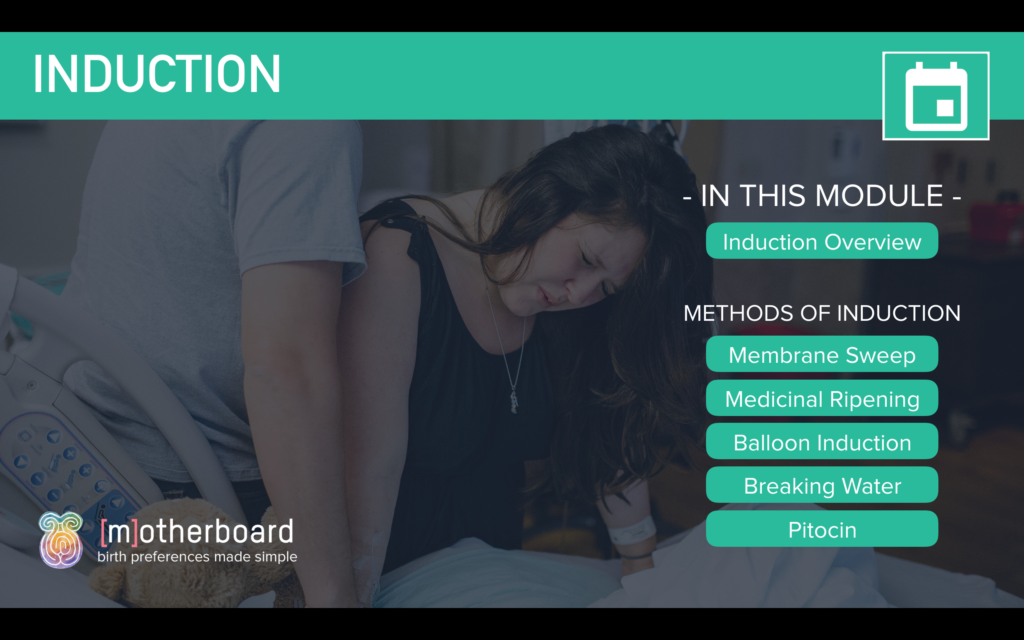
That’s where the real genius of Motherboard comes out to play. Amy’s solution is to link her online visual birth plans with easy to understand birth education.
“Most families don’t know how they feel about foetal monitoring, or even what foetal monitoring is. They don’t know the different ways you can get induced or the benefits and risks that come with induction. They don’t know what happens when somebody breaks your water.”
Birth is a complex landscape to navigate at the best of times — any birth involves choices about tests, ultrasounds, induction, birthing positions, vaccines, monitoring, interventions, when to cut the cord or not, when put the baby on the chest, and even how to birth the placenta. How can a birthing parent ever hope to communicate all that to their care provider in the exact instant when the care provider needs that information if the birthing parent may be in no way able to express themselves?
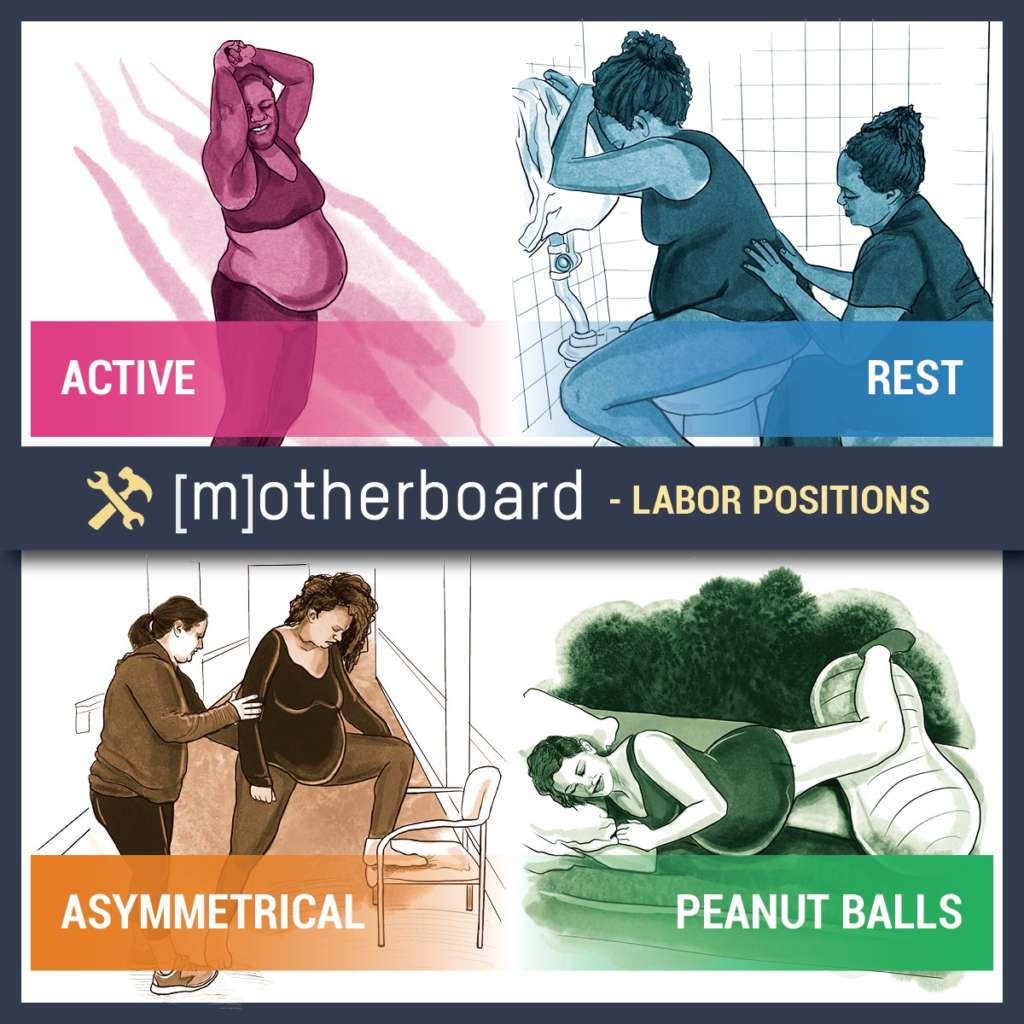
Yet Motherboard’s simple and colourful icons, paired with matching educational in-depth walkthroughs, takes the mystery out of birth choices and the urgency out of communication. Parents can learn as little or as much as they want about each procedure and option, pop their choice on the board, and the care provider can quickly refer to it during birth, at a glance understanding just what’s most important to them.
To craft such a simple and yet beautiful end-user experience has been an epic adventure that’s taken Amy 6 years, and couldn’t have been achieved without her previous years of experience as both a doula (a birth assistant) and parent, knowing from the other side of the table exactly what a birthing parent is looking for to make their experience a positive and empowering one.
Birthing parents are customers of the birthing experience, and yet, because of the barriers to expert knowledge, at this most exciting and expressive period of a woman’s life, a mother in the medical system may be subject to feeling she is being treated like a little child — with untold psychological consequences of trauma, disempowerment and depression.
Amy’s mission has been to return the dignity and the beauty of the birthing experience to parents, first as a doula and then with her art, and with the Motherboard App she achieves that.
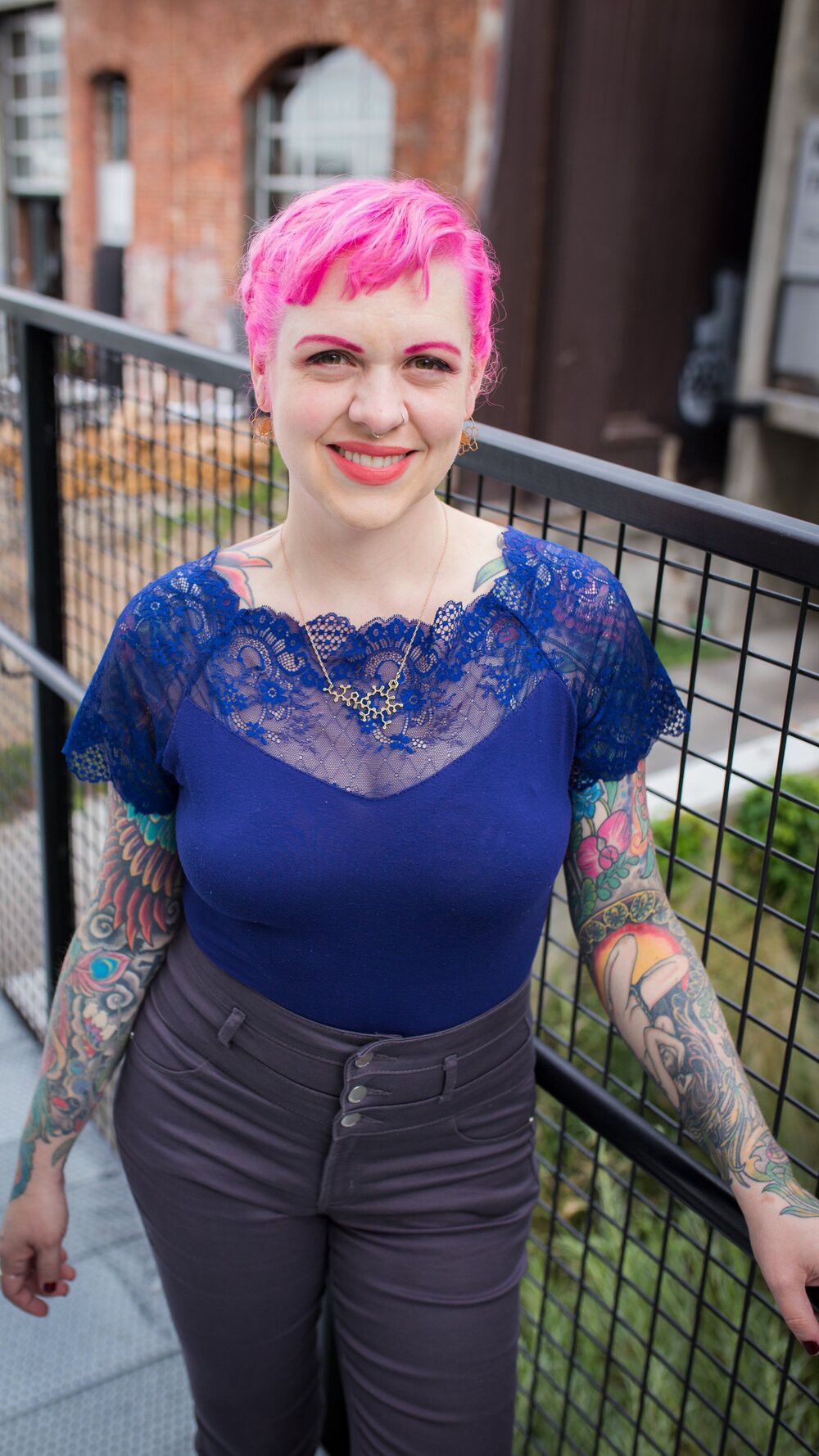
Nevertheless, as a non-technical founder with a technical platform necessary for the execution of her vision, her path to tech founder hasn’t been without bumps in the road. Like any founder, she’s had to stretch beyond her prior knowledge as a sole business owner, but also claims she’s been tasked with navigating “all the patriarchal bullshit that goes along with that.”
“I would interview developers that would only want to talk to my male co-founder,” Amy says, rolling her eyes.
“It’s been kind of a wild ride over the last year, lots of ups and downs.” Until only a couple months ago, Amy on her own without a team. If she was complemented by others for the work her team had done, she says she’d be like “yeah… my team…”
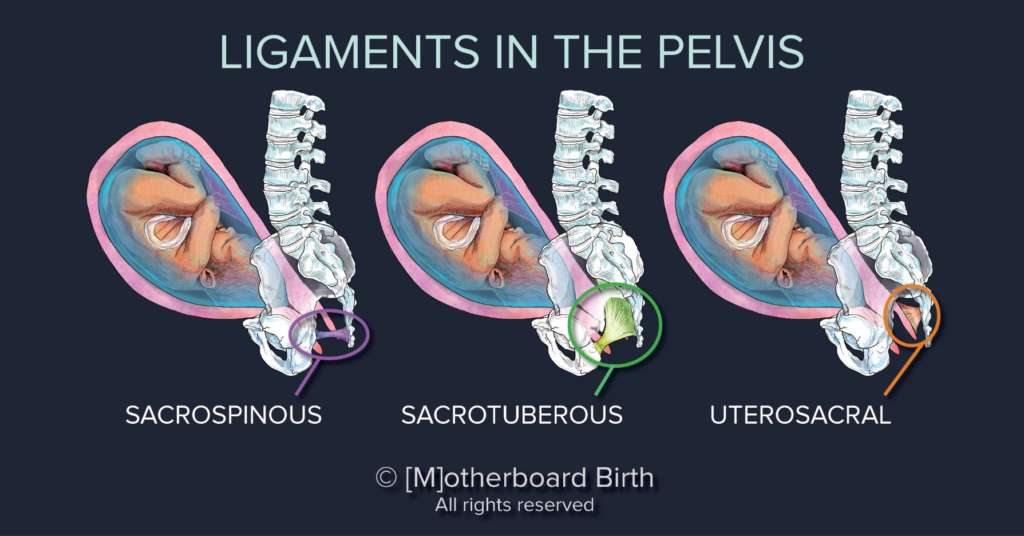
Just about all the exquisite and well-executed educational content that you see now on the Motherboard website has been produced alone by Amy, from her background as a fine artist and doula. Her intentions are to produce education materials for all the birth care providers who use it with their birthing clients. From the perspective of the author, it’s some of the best I’ve read and seen.
“If you are to boil down what I’m really passionate about it’s education and communication and also informed choice….childbirth ed and doulas are only half of the equation. I’m really passionate about working on the other size of the equation: Care providers, birth teams and health care systems.”
Doulas are an essential guide at any birth, however, few birthing parents use them, sometimes out of lack of awareness, and sometimes due to expense. A doula is like a cushion between the birthing parent and the hospital system, explaining procedures and practices to them that the medical practitioner might not have time or incentive to do. They work for the family, and thus are seen as a buffer between them and a faceless, over-bearing medical system with its ticking clock and standard measurements.
Motherboard is like a doula in your pocket. Without it, “Informed choice is at best very inconsistent. At worst it’s absent or manipulative,” says Amy.
“A provider is just going to say what you need to say to get the job done and it really opens them up to a lot of liability.”
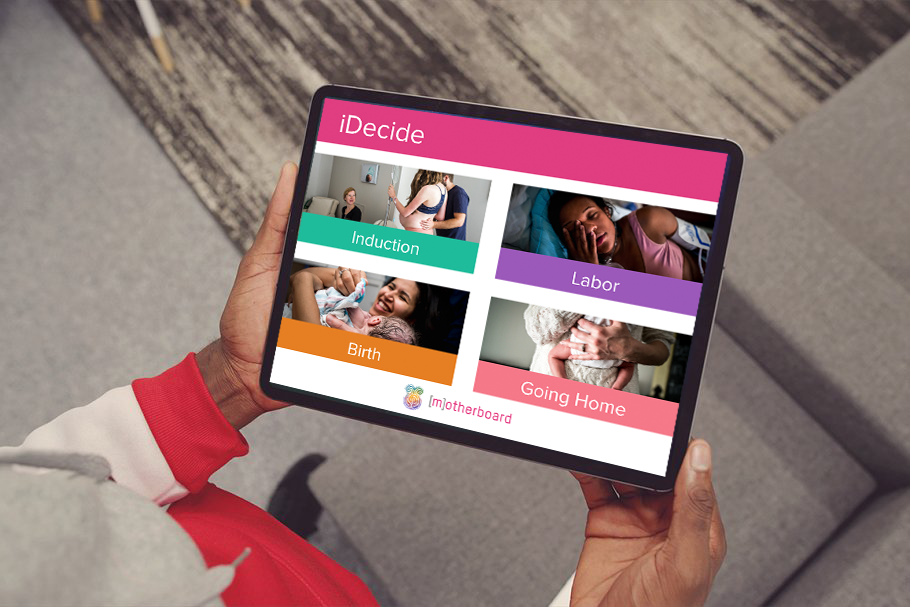
Amy’s company is also working on the tool called “iDecide”, a clickthrough informed choice tool helping care providers give timely, evidence-based information at the bedside. When it becomes clear that a medical decision needs to be made, doctors can hand over the iDecide tool so the patient can go through the module alone, allowing the doctor to come back and discuss the patients’ options on a more level playing field atop that education.
“We’re taking some of the weight off providers to educate. This allows medical staff to instead spend their time answering patient-specific questions and building relationships.”
“I think that’s the best application of tech — when you use it to build relationships.”
In modern times, the emphasis has been placed on making the woman’s body a birthing machine — she’s on the clock and under pressure to perform to arbitrarily set standards of what normal birth looks like. In contrast, Amy’s technology puts the automation back where it should be — away from the mother, and into the systems to support her and inform her.
“I would like to help health care providers recapture the joy that they experienced and the reasons why they got into perinatal health. Compassion fatigue is a real thing. Secondary trauma is a real thing. So we need to automate and take the weight off them as much as possible.”
Amy talks about how it can take two decades for new evidence-based research to be integrated into clinical practice. “We need better ways to automate evidence-based information and how it influences clinical behavior.”
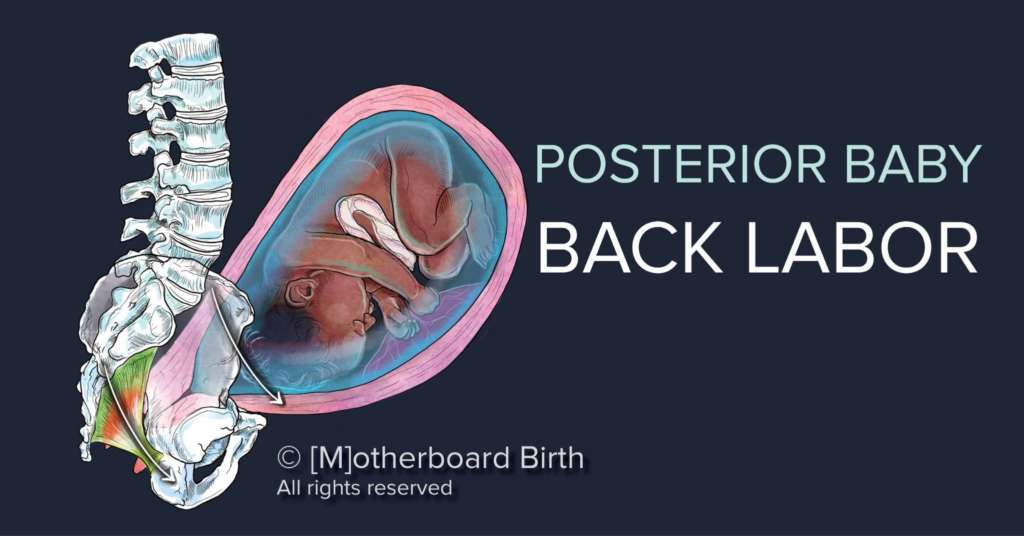
Amy compares entrepreneurship to childbirth. “I tell people I’ve been in labour for six years. Prodromal labour, start and stop labour for about five of those.”
When she got to the point of pitching tech partners, that was the start of active labour. “When we were beta testing, we were pushing,” laughs Amy.
Amy’s reaction to launching surprised her. “I launched November 5, and then I cried for a week.”
Bringing her big tech baby to the world made her feel vulnerable and exposed. “I felt like all my insides were on the outside, I felt so raw and vulnerable. It’s like those moments as a new parent.”
“Now I’m parenting this enormous tech baby. I’ve had to natural births, and I think birthing this tech baby was harder! It was definitely longer!”
Certainly, I agree that giving birth to any business as an entrepreneur can be like giving birth to a baby — and I’ve even spoken to other birth professionals like Jane Hardwicke Collings and Mechell Turner who feel the same!
Just as all the elements need to align for an easy birth — mentally, emotionally, and physically — for our passage to entrepreneurship to be smooth, we need to be personally ready to bring a new idea into the world at the same time that the world is willing to receive it — and pay for it!
Amy recommends we read the book “Big Magic” — “It’s about living creatively. The author, Elizabeth Gilbert, talks about how she believes the world is not only inhabited by people, plants, and animals but also by ideas.”
“I’m first and foremost an artist and I found tech to be creative in a way I didn’t expect.”
For Amy, Motherboard birth was an idea that was ready to be born, and she was ready to do the work to bring it into the world, fully formed.
Interested to hear more about Amy’s experiences as a Femtech startup founder and her vision for Motherboard App? Watch the extended interview at http://www.learningtobirth.com/techbaby.
About the Author
Akasha Rose provides brand strategy coaching, marketing consultation and customer experience design to startups and business owners. She has been a leader in women in blockchain for the last three years and recently completed a 40-day online summit interviewing thought leaders in birth and pregnancy for her online portal Learningtobirth.com.



